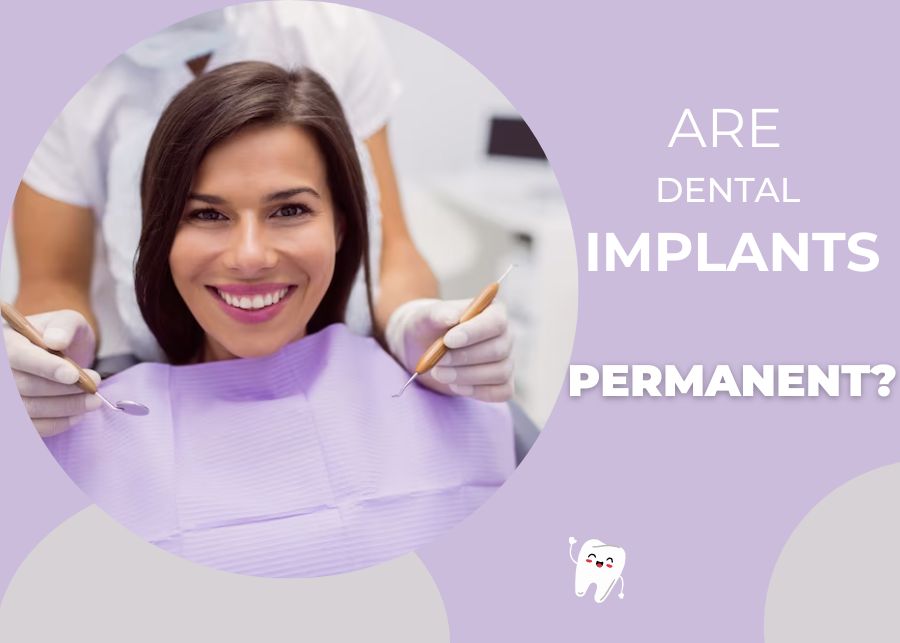When you have missing teeth, dental implants will benefit your smile and oral health immediately. Patients who miss teeth have their daily activities affected and altered self-esteem. Luckily, dental implants are an attractive and comfortable alternative to tooth loss. The best part is that they don’t only contribute to your smile but also your overall health.
Dental implants are a lasting solution for patients with lost teeth. Once in place, they function like natural teeth as the titanium post integrates with the jawbone to give a stable anchor for the replacement tooth.
Dental Implants and Their Benefits
Improve Appearance and Confidence
Dental implants’ final result will look and feel like natural teeth. The patient will not have to worry about losing it while eating or speaking since the implant will fuse to the jawbone.
They Cause No Discomfort
The patient will feel no discomfort at all from having implants in the bone. This is because the titanium screw becomes a part of the bone through the osseointegration process. The bone ends up fusing with the titanium post.
Prevent the Loss of Other Teeth
A dental implant permanently replaces a missing tooth. Dental implants stimulate the growth of new bone, which benefits your jawbone and your remaining teeth.
Low Risk of Gum Disease
Preserves Bone Density
Dental implants are suggested as a replacement for the missing tooth to protect the bone. After tooth loss, the bone surrounding the empty tooth socket begins to deteriorate and weaken, causing the jawbone to lose its volume and density. Inserting implants into the jawbone ensures that the bone continues to get the stimulation necessary to preserve its structure.
No Need for Special Maintenance
Patients will not need to change their oral hygiene routine due to the structure of dental implants. Practicing oral hygiene with dental implants is easier!
Healthier Diet
With dentures and bridges, there is a long list of foods to avoid, including some very healthy ones like nuts, seeds, or vegetables. Dental implants do not bring any of these food restrictions, as they will recover your chewing process.
How Long Do Dental Implants Last?

The titanium implant post can last forever: they interface directly with the jawbone and becomes bonded with surrounding tissue through a process known as osseointegration. Once the osseointegration is completed, the material of the implant and the surrounding bone will fuse. As a consequence, the implant can serve as an artificial tooth root.
Dental implants are designed to be permanent. However, there are factors that can contribute to implant failure:
In general, implant failure happens when something interferes with osseointegration or the healing process. These are some of the factors that may cause the implant to fail:
Poor Care and Maintenance
Oral hygiene is key to good results. Poor oral hygiene can lead to the accumulation of plaque, and this can cause gum disease, which can damage both the patient’s gums and jawbone.
Read more about Dental Implant Aftercare tips here.
Not Enough Bone
If there’s not enough jawbone present to secure the implant in place, it’s possible for the implant to fail. Bone loss over time can destabilize the implant. This can be caused by many factors, including osteoporosis, peri-implant disease (when the plaque buildup from poor oral hygiene affects the area around an implant), smoking, and other medical conditions that impact bone health.
Medical Conditions
There are many medical conditions that have been associated with dental implant failure including diabetes, osteoporosis, a weakened immune system, bleeding disorders, and cardiovascular disorders like high blood pressure, atherosclerosis, and congestive heart failure. Read more about Medical Conditions that Prevent Patients From Getting Dental Implants here.
Teeth grinding
Teeth grinding or any occlusal trauma can cause a fracture of the implant, fracture or loosening of the screw, or fracture of the crown’s porcelain. The movements of the implant can interfere with the osseointegration process.
Smoking
According to studies, there’s a lower dental implant success rate in people who smoke. Smoking may interfere with blood flow to the affected area, and it negatively impacts osseointegration and the healing process, not to mention smoking is also a risk factor for gum disease.
.
What To Do if the Implant Fails:
If there’s any symptom that points to a failing implant, it’s essential to see your dentist as soon as possible.
Here are some potential signs of implant failure:
An implant that moves
Pain
Signs of peri-implantitis (redness, bleeding, pus, swelling, receding gums)

Overall, dental implants are designed to be permanent. This is because implants interface with your jawbone, becoming bonded with the surrounding bone through osseointegration.
If you want to decide whether dental implants are the right choice for you, contact Northern Colorado Dental Specialty and Dental Implant Center. Call +1 970-825-0000, or visit us at 1221 E Elizabeth St Unit 4, Fort Collins, CO 80524.


